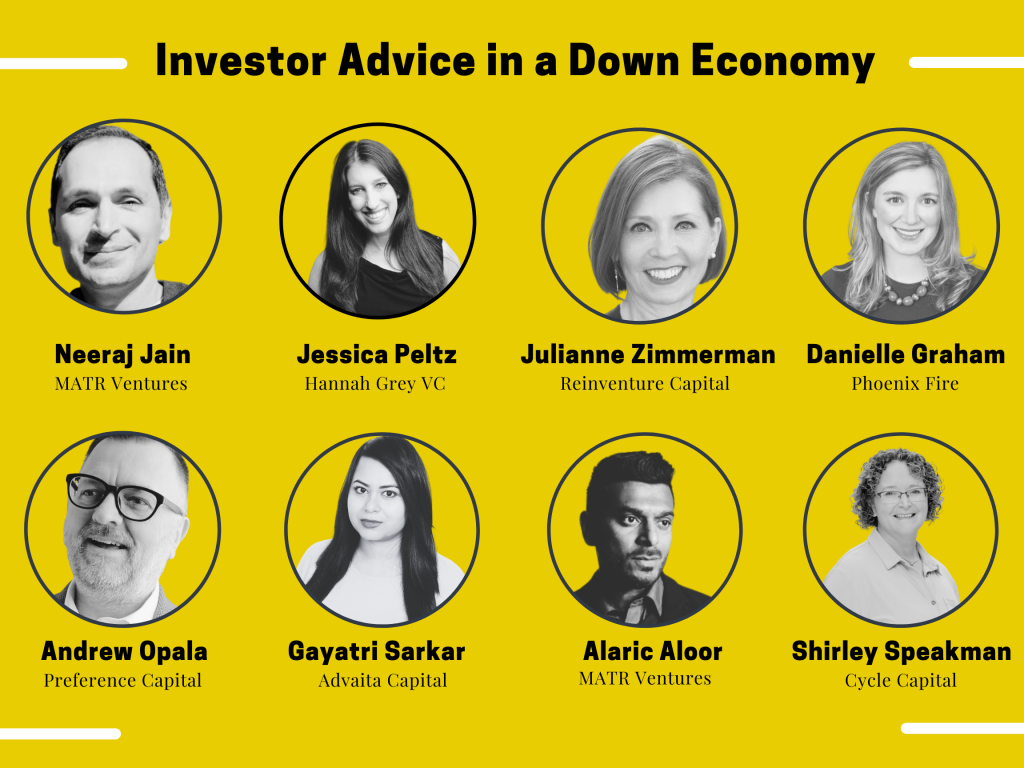Home » A Down Economy Means Tightening Belts and Being Strategic About How Resources are Allocated
A Down Economy Means Tightening Belts and Being Strategic About How Resources are Allocated

originally published: 2022-07-27 09:00:49
For Alaric Aloor, General Partner at MATR Ventures, and CEO of Archon Security, a 9-year-old company with 19 employees, human capital is the most important to a business, even during a downturn. He alludes to this “fire fast, hire fat” mentality Sarkar introduced:
“When I talk to startups that I advise and they are looking to hire, I tell them to look for cultural fit. More importantly, are you going to be able to provide this person you are hiring with sustainable employment opportunities for growth over the long term. I am not talking to one year or two… but 5-10 years because as a founder and CEO, if that is your vision, you are going to be bringing on the right pieces to fit NOT because you received some funding. I advise against this because it is a bad model for growth without actually selling… So, when I advise startup founders about hiring, it is to avoid layoffs that we are now seeing across industry i.e., explosive hiring that companies have done with no consequence of looking at the long term. When you are a company that wants to be stable and in the long game you must have sustainable hiring processes and practices. Without that, the faster you go up, the faster you come down.”
Danielle Graham, Managing Partner of Phoenix Fire and Cofounder of The Firehood, an angel fund and network focused on women in technology, illustrates for founders the importance of aligning core activities to core milestones, but more importantly, effectively negotiating their worth if they are hitting those milestones:
“Be frugal. Be focused no matter how incredible your product is. Manage your activities to hit those milestones, leveraging early-stage opportunities that investors are expecting to warrant the next round. Companies doing well will continue to get funded. There is still capital in the market. It is getting those companies forward with 2x to 4x return before earlier investors or common shareholders get anything, so they do not want to be at the bottom of that waterfall when you have heavy liquidation preferences. You need to be negotiating that lever and fight harder on your deal terms and rights. If you are doing well, you have product market fit and you are hitting your milestones then you should have less to worry about because you are building a viable company.”
Similarly, Peltz-Zatulove of Hannah Gray VC defines the need for empathy with a dose of reality.
“I would look to the founding team to redefine what those KPIs and milestones are for the next 18 months. Make sure you have a clear idea about what you need to accomplish to get to those milestones. With a fresh set of eyes think about the budget and team you need to accomplish those goals and, in the road ahead.”
Shirley Speakman, Senior Partner, Cycle Capital, an impact investment company focusing on cleantech, expresses the importance of transparency when a founder communicates with employees.
“If you try to hide things from the employees or gloss over it, people will see through it. And inevitably, if you must raise capital and you need to reduce your valuation, this will scare employees, and will trigger perceptions of the company being worth less or heading into a downward spiral. So, again, managing the cash without cutting bone is an important part of giving employees confidence that you can manage through this time that’s ahead of us.”
Zimmerman, Reinventure Capital, agrees with this prevailing view of rigorous cash management:
“For founders who can either alter the product or service offerings so that you can generate revenues in excess of costs if you haven’t been, or bring your revenues, at least in line with your costs if you haven’t been, I strongly encourage you to do so. So, if you’ve been burning hard, hard, hard, and you are concerned about conserving your ability to make decisions, focus on bringing your revenues in line with your expenses. That may mean reducing your burn rate. But it may mean offering new products or services or offering new tiers or offering new means or even reaching new customers to engage with your product or service — strengthening your customer base bodes better for resilience and future opportunities for growth than simply cutting back. For founders who are already operating at or above breakeven, I would say really work to understand exactly what the drivers of your profitability are and double down on those.”
Jain, MATR Ventures, emphasizes the importance of team:
“They should involve the team and planning. How are we going to conserve cash? Involving the team in that is important. You do not want to create fear. You certainly do not want your good people to leave. So, you know, they need to feel confident that you have the right plan.”
Altitude Accelerator
https://altitudeaccelerator.ca/
Altitude Accelerator is a not-for-profit innovation hub and business incubator for Brampton, Mississauga, Caledon, and other communities in Southern Ontario. Altitude Accelerators’ focus is to be a dynamic catalyst for tech companies. We help our companies grow faster and stronger. Our strength is our proven ability to foster growth for companies in Advanced Manufacturing, Internet of Things, Hardware & Software, Cleantech and Life Sciences. Our team consists of more than 100 expert advisors, industry, academic, government partners. The team helps companies in Advanced Manufacturing, Internet of Things, Hardware & Software, Cleantech and Life Sciences to commercialize their products and get them to market faster.


